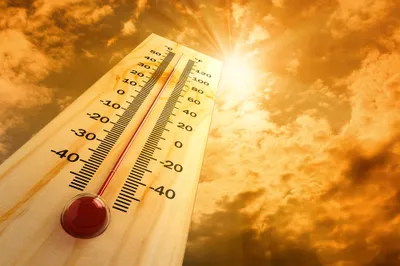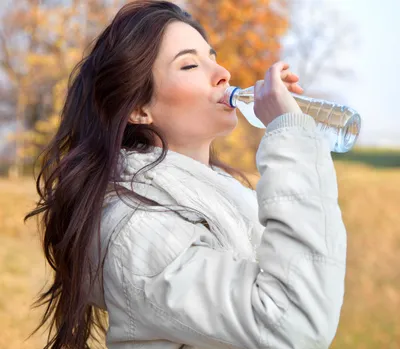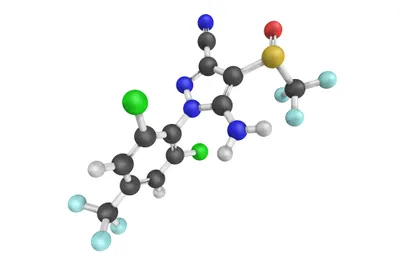We’re coming into the warmer season, and for states that are already relatively warm for most of the year, that means they’ll be especially hot. While that means sipping beverages on patios and lounging on beaches, it also means certain health considerations.
Enjoying the sun and outdoors during the late spring and summer (and into early fall) is something many Americans look forward to, especially those in northern states that are covered in snow 6-months a year. However, here are seven ways the high temperatures should have you on higher alert…
1. Heat Stroke
Scientific America notes that sustained extreme heat can overwhelm the mechanisms in your body meant to regulate temperature, such as sweating in particular. In fact, ” When a person is exposed to heat for a very long time, the first thing that shuts down is the ability to sweat,” notes the article.
The problem with this is that sweat has a cooling effect when it evaporates, and if you stop sweating, then obviously this benefit dissipates too. It doesn’t take long after that point for a person to suffer from heat exhaustion or heat stroke, the latter which is when your core temperature climbs above 104-Farenheit and becomes a medical emergency as it can damage internal organs, including the brain.
2. Heightened Aggression
Wired magazine shares an article entitled “The Hazy Science of Hot Weather and Violence,” which explains there’s some loose evidence linking higher temperatures and more aggressive behavior. In fact, it points out people with short tempers are called “hotheads,” apparently in reference to being affected by too much direct sun.
The article notes that a study over a 2-year time span shows violent crime in Minneapolis rises with the thermometer, “but only to a point”. There are some explanations such as more people being out in warmer weather thus presenting more opportunities for violent interactions, but the article also notes hot weather increase testosterone production, which makes people more ready to fight.
3. Dehydration
High heat deprive your body of precious water perhaps faster than you think – The Weather Channel notes if you’re exposed to direct sunlight in temperatures of 90-Farenheit or higher, “the body can lose as much as half a gallon of water every 10 minutes.”
Dehydration is even more of a problem in areas where humidity is low, which is the norm in states like Nevada and Arizona. Meanwhile, dehydration can mess with the body’s internal functions and make you more susceptible to sunburns and the afore-mentioned sunstroke, adds the source.
4. Hyperthermia
This condition, which is basically the flipside of what happens to your body’s internal temperature if you fell into an icy lake, is the inability to regulate its temperature – due to not being able to properly flush out sweat.
Just like low humidity, high humidity (lots of moisture in the air) poses health risks as it makes it more difficult for sweat on the surface of your skin to evaporate due to the air already being so saturated, according to UPMC Healthbeat. Symptoms of hyperthermia include fatigue, cramps, and even fainting, it adds.
5. Lowered Productivity
High heat can put us into summer slumber mode, where we really don’t feel like doing much of anything except lounging by a pool or in the middle of a field (whichever is closer). This can impact your effectiveness at work in particular, and there are a number of reasons why this laziness occurs.
Bustle.com explains your body uses up energy from glucose (sugar) when trying to regulate its temperature. “When trying to cool itself down, the body uses up a hell of a lot more energy than when it’s warming you,” it adds. Not only that, the source notes research has found that critical thinking is negatively impacted it hotter conditions, making decisions harder. Also, there’s that whole thing with staring out a window at a beautiful sunny sky and weighing it against staring at a screen in a gloomy office…
6. Breathing Difficulties
Rising heat and humidity can make it tough to breathe for some, especially if they have pre-existing respiratory conditions like asthma. The Cleveland Clinic says, “Although it’s true you can’t change the weather, you can take steps to adapt”. This can be trying to minimize temperature fluctuations as much as possible, like when you’re going from a hot environment to a cool one (and vice versa).
Of course, you should be seeing a doctor if you’re having labored breathing in hot conditions. “In most cases, shortness of breath is not normal,” explains the source. A physician may prescribe medications to help with inflammation causing breathing troubles, or recommend an inhaler to open up air passages.
7. Nervous System Disruption
A post from Illinois State University says, “Even a small increase in temperature can have devastating effects on nervous system functions”. A small rise in temperature of 5 to 7-degrees Fahrenheit, “similar to a strong fever,” can spell trouble for nerve endings, notes the source.
A research team looked at the effects of this relatively small increase in heat on crabs along the Atlantic coast, and was surprised by the findings that it can “lead to a termination of vital rhythmic activity”. However, the team notes that neuromodulators are released in response, which can counteract the effects of the heat on the nerve cells. “Studies of neuromodulators may also help to understand why sudden infant death syndrome occurs more frequently in children with elevated body temperatures,” it explains.










